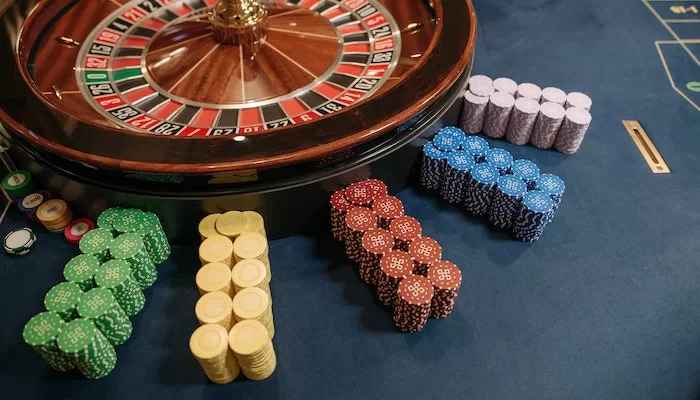Entertainment
The Psychology of Gambling: How Your Mind Works When Playing Online Casino Games

The rise of Internet casinos has made playing various games and gambling more convenient. But, a complicated psychological mechanism influences people’s thoughts and actions.
This article discusses the mental process of gambling in casinos.
It examines how emotions, incentives, and the illusion of control affect gambling. Also, it examines how cognitive biases shape people’s online gambling actions.
The role of emotions
Emotions play a massive role in people’s decision-making process about gambling. The thrill of playing games on platforms like these popular roulette sites is so alluring. Hence, many spectators give in to their need to participate.
Winning a wager or striking the jackpot triggers dopamine release in the brain. Both are associated with feelings of pleasure and excitement. The release of dopamine after achieving a goal increases motivation to play further.
Gambling choices may also be affected by negative emotions like anxiety and fear. Anxiety might induce you to become cautious and avoid taking any chances.
At the same time, fear of losing can motivate you to take more significant risks to recover losses.
Effects of incentives
The effects of incentives on gamblers have been studied extensively over the years. The result reveals that people bet more often and for extended periods when incentives are given.
The logic behind this suggests that players who get incentives are more likely to keep gambling because doing so increases their odds of success.
Because of this, an overhaul of UK online gambling laws could see the £2 slot machine limit for under-25s. The law aims to reduce the amount of risk exposure permissible to each gambler.
It might be counterintuitive because people may be more inclined to accept more significant risks in exchange for more incredible benefits, especially when they are incentivized to gamble.
Understanding cognitive biases
Cognitive biases are mental shortcuts used by the brain for efficient decision-making. One common bias is the gambler’s fallacy.
This bias is a prevalent kind of overconfidence in one’s ability to predict the future.
When individuals see a pattern, such as heads appearing five times in a row, they may assume that tails are “due” and will appear on the following flip.
It is not true; prior coin flips do not influence the outcome of the current one.
Another cognitive bias is the confirmation bias. It seeks information that confirms beliefs and disregards contradictory data.
The illusion of control
Ever since the poker boom, people’s gambling choices have been heavily influenced by their sense of control over the situation.
The illusion of control may trick you into taking risks and making bad decisions by making you feel like you have more influence over the result of a game than you do.
To overcome this delusion, know its mechanics and how it influences your choices.
When making wagering judgments, ensure to keep your prejudices in check.
Moreover, it would help if you kept in mind that the importance of chance in influencing the outcomes of a game cannot be overstated, no matter how much control you believe you have.
The impact of culture
People’s perspectives on gambling are strongly shaped by their cultural backgrounds. How people from various cultures handle gambling is indicative of these cultural differences.
Gambling, for instance, might be seen as a kind of risk-taking or even an addiction in certain cultures while being seen as a sort of fun or leisure in others.
Cultures’ conceptions of chance and destiny can also impact gamblers.
Some communities may believe one can do nothing to influence events involving chance. However, citizens of other societies may see change as something that may be manipulated via careful planning.
The bottom line
Cognitive and emotional reactions like the allure of risk-taking may impact players’ actions and choices when playing online casino games. Because of this, players must engage in responsible gambling practices like establishing boundaries on how much time and money may be spent gaming.

















































